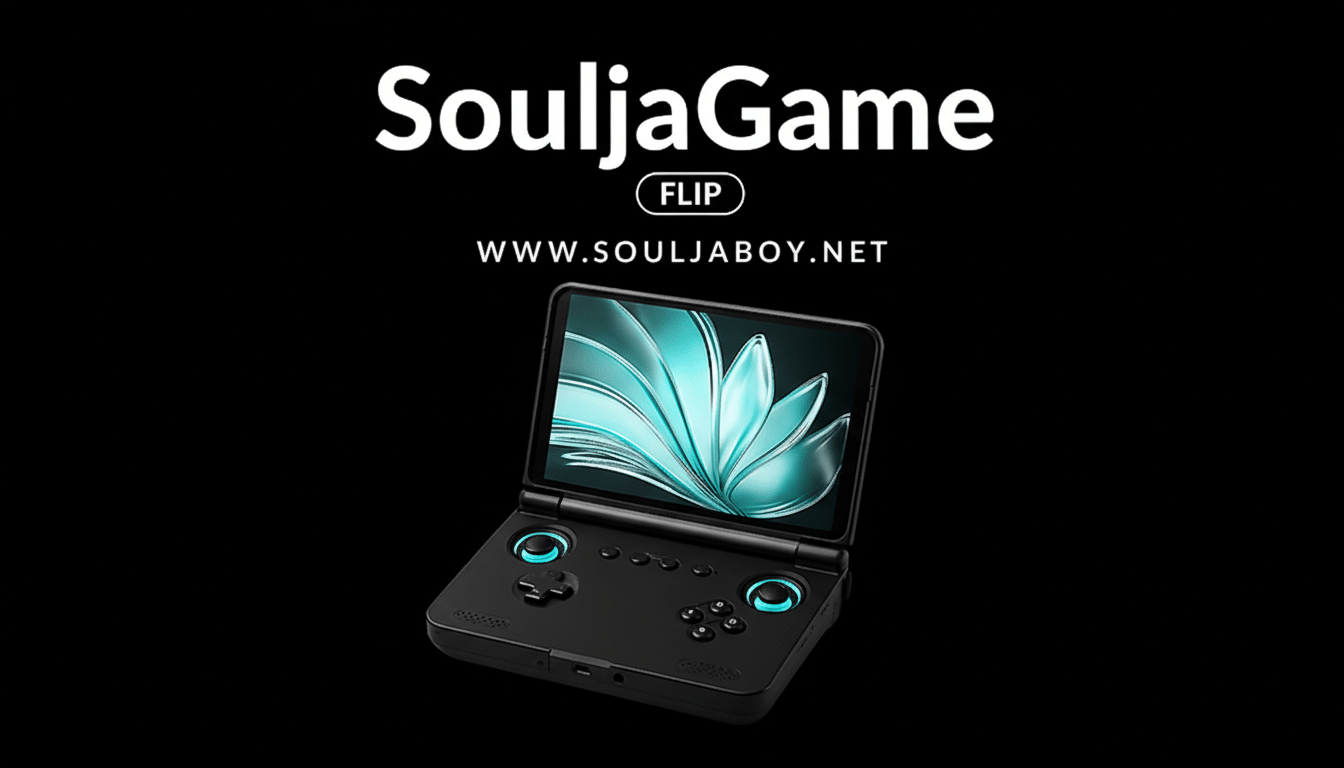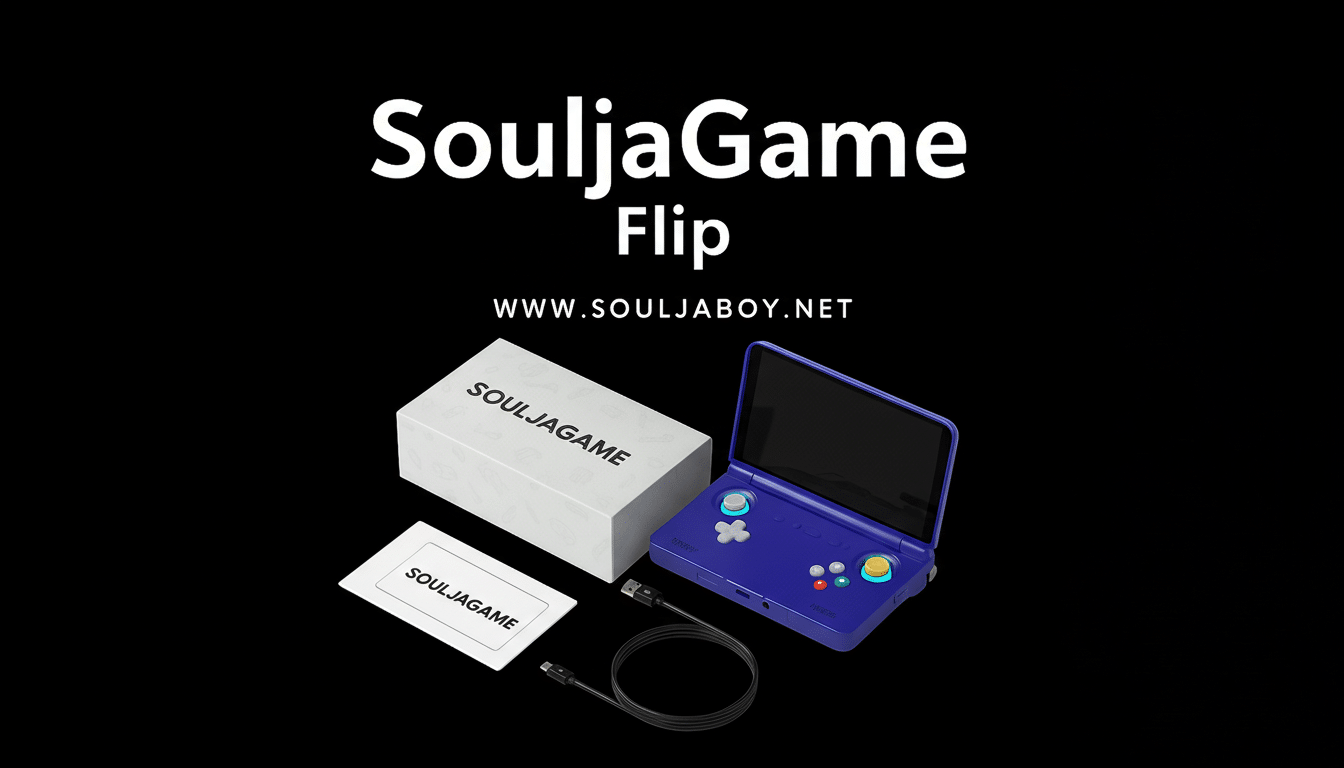Rapper and entrepreneur Soulja Boy is hyping up a new handheld system known as the SouljaGame Flip. It soon became evident that the device was nothing more than a rebrand of the Retroid Pocket Flip 2. The original manufacturer, Retroid, has claimed that it didn’t permit its distributors to label or sell the device. A video published on Instagram saw the artist promoting it as a pocket-size system that has applications and pre-installed games named after Sonic and even social networking platforms.
The similarities to the SouljaGame Flip were obvious when comparing images shared by the rapper’s website to official ones of the Retroid Pocket Flip 2. In a post published by retro handheld outlet Retro Dodo, it was revealed that the seller’s resale status was uncertain.

What Is Being Sold and Why the Rebranding Matters
The SouljaGame Flip product post immediately gained attention after the Retro Dodo piece was shared, since the matching was self-evident. Soulja Boy’s prices on the device began at a remarkable $436. From the genuine MSRP of $209, readjusted from $250 by Retroid, that’s a 109% markup. Afterward, his product was offered for $200, yet that reduced pricing is only about 4% below the Pocket Flip 2’s promised MSRP.
The pricing raised questions about where the units were obtained, since it suggests gray-market reselling or imports. Retroid, a trusted brand that specializes in Android emulation, issued a statement claiming the rapper “has not been given permission to label our devices.” Regarding customers’ worries, Retroid warned that purchases made there could void warranties, cause delays, or bypass standard customer support channels.
Retroid Pushes Back on Unauthorized Rebranding
Unauthorized rebranding is not the same as routine reselling. Rebadging another company’s hardware and marketing it as your original product can implicate trademark, trade dress, and consumer protection laws — and when the listing recycles brand assets or confuses buyers about origin, things are apt to get messier still.
Retroid’s counterclaim makes it clear that it’s not going to let its branding or the distribution network it’s built be unwound without a fight. High-street resellers are unlikely to be pleased about having paid the company to establish a channel only for a rebrander to abuse it.
There’s also the matter of software claims. Advertising Sonic already implies pre-installed games, and that means bundled copyrighted content, which — even assuming it’s not illegal to make an emulator — is problematic since the motion picture and music industries are strict about the broad-scale copying and distribution of copyrighted material.

If you follow the news from Soulja Electronics, it’s familiar territory. Soulja Boy’s 2018 attempt to market handhelds and emulation consoles ended in devices quickly vanishing from sale under the combined pressure of all major console manufacturers’ legal departments. Previous customers reported unfulfilled orders and incoherent support lines.
The parallels this time are clear: fast promotion to social media personalities, instantly recognizable off-the-shelf devices, and a dense fog over licensing and fulfillment. It’s not clear that the mainstream is taking it any more seriously; the top comment on the artist’s promotional tweet questions the legality of reselling a branded handheld as a different company’s, while the second simply replies with a photo of the Steam Deck. A familiar playbook, and a querying audience.
How to verify what you’re buying in retro handhelds
If you’re in the market for a retro handheld, a few quick checks can save you a world of hurt.
- Make sure your seller is an authorized retailer or the brand’s official store.
- Check product photos and specifications against the manufacturer’s listings; recycled marketing images are a red flag.
- Get warranty and return policy details in writing.
- Avoid any bundles claiming to include libraries of preloaded copyrighted games.
- For the Retroid Pocket Flip 2, buy from Retroid or partners that publicly list serial-tracking and support policies.
- A few bucks saved up front could cost more later if you need repairs or updates.
The bottom line is that all evidence indicates the SouljaGame Flip is indeed a Retroid Pocket Flip 2 sold under an unauthorized new label. Between the 109 percent initial price hike and subsequent price decrease, resellers can’t pretend they’re offering anything but a black- or gray-market product. It’s unclear whether authorization, warranties, and software licensing will be coming soon, so it’s better to be safe than sorry.
The retro handheld community relies on innovation and the trust of its members and players. Rebrands like this one are dubious and undermine that trust. Retro gaming is a far safer bet when you shop with known, legitimate dealers.

